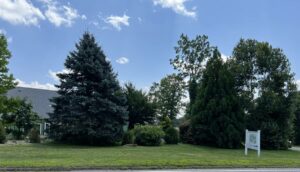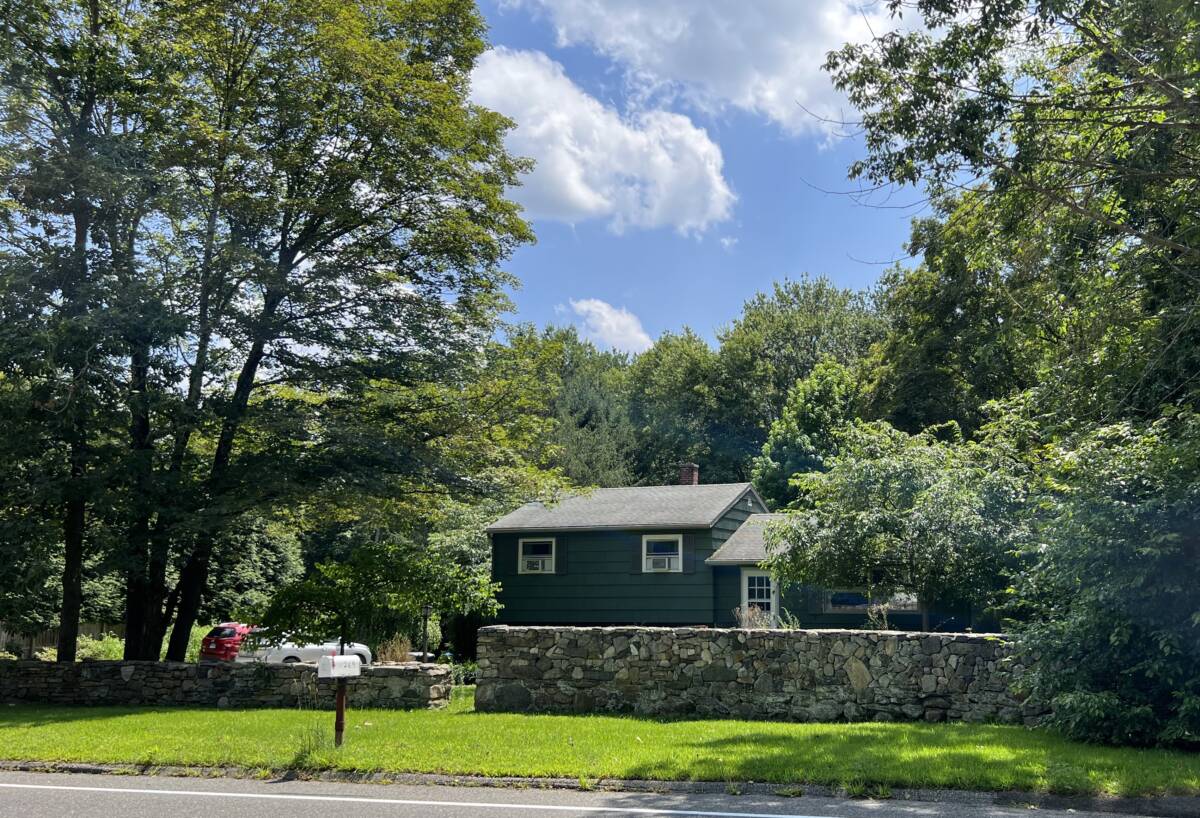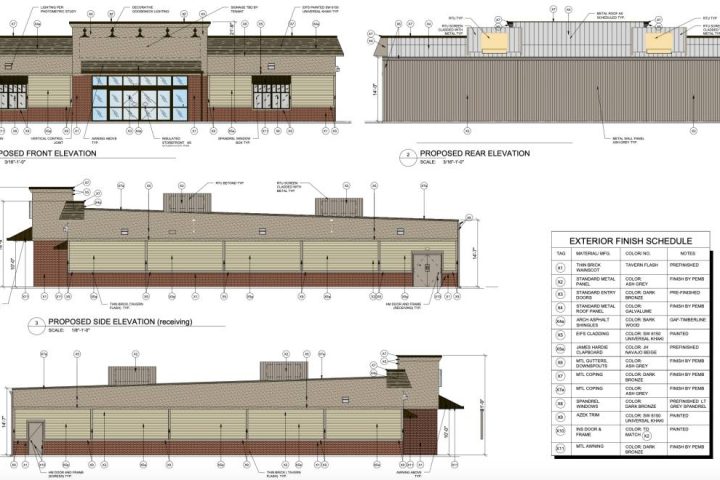MONROE, CT — When the Planning and Zoning Commission approved the construction of an age 55-and-older community with eight buildings and a total of 25 two-bedroom-units at 269 Purdy Hill Road three years ago, the property owner agreed to demolish a raised ranch on the site.
Now that the property changed hands and construction of Cutlers Farm Crossing is underway, the current owner, Sound II Home Builders LLC, wants to keep the house, separate it from the condo development, renovate it and sell it at a profit.
A text amendment would allow Age Restricted Residence (ARR) Districts to be on parcels that are a minimum of nine acres within a single contiguous lot, instead of 10.
If the Planning and Zoning Commission approves the text amendment, the developer would subdivide its property to retain the single-family house on a one-acre-parcel, while seeking to modify its special exception permit to complete the 25 attached age restricted residences on the remaining nine acres at 269 Purdy Hill Road.
During a hearing on Aug. 3, Charles J. Willinger Jr., the attorney for the applicant, told commissioners the house is still structurally sound, so they want to keep it.
“We want to change the property with house back to an RF-1,” he said of the residential farming zone it was in.

In 2020, Beaver Brook LLC owned the property at 269 Purdy Hill Road. During a Planning and Zoning Commission hearing that February, the applicant’s engineer, David Bjorklund, explained why they wanted to demolish the existing house and shed on the property.
“We can’t keep it because of the wastewater flow,” Bjorklund said. “We will use it until 80 percent of the certificates of occupancy are issued. Then, maybe the house will be removed.”
A bill was before the legislature to increase allowable wastewater discharge from 7,500 gallons per unit to 10,000 gallons. It nearly passed and could come back, according to Bjorklund. If it does and passes, he said the house could remain on the site.
The text amendment
Willinger said the text amendment does not propose a change in allowable density in the ARR Districts regulations, noting that Cutlers Farm Crossing would still be less-than the allowable maximum of five units per acre for attached units.
If built to the allowable maximum density, Cutlers Farm Crossing would be 45 units instead of 25, according to Willinger, who said that would be bad for the neighborhood, and density should be what the town is most concerned about.
“As long as you have that density protection, there shouldn’t be an issue,” he said of changing the minimum allowable acreage for an ARR.
The hearing, which was closed on Aug. 3, includes four applications: the text amendment to the ARR regulations and proposals to subdivide the property, change the zone for the house back to an RF-1, and modify the special exception permit for the condos.
If allowed to keep the house, Willinger said the subdivision and reverting the house back to its original RF-1 would make sense, because it does not belong in an age-restricted community with a different style of living and common fees.
The attorney also said keeping the house would not generate additional traffic, and that there would be no adverse impact on the neighborhood or to the public.
“We’re not changing or adding any development,” Willinger said. “It is what it is. An RF-1 is in harmony with the surrounding neighborhood.”
The applicant proposes improved landscaping with larger trees and ornamentals with dogwoods, oaks, sweet gums and maples. Willinger said Jason Edwards, the surveyor for the applicant, has done a good job of trying to keep some older existing trees on the site, which used to have a nursery.
“The Inland Wetlands Commission modified its prior approval and found no adverse impact on the wetlands and waived the public hearing,” Willinger said, adding his belief that the wetlands commission will formally approve their application on Aug. 23.
“I suggest we meet the standards, and that you agree, as long as the density doesn’t change, the acreage is just a number,” Willinger said to Planning and Zoning Commission members. “We ask that you kindly approve these applications.”
Impact of approval
During a discussion of the proposal, Commissioner Leon Ambrosey questioned changing the minimum acreage for an ARR from 10 to nine in the regulations.
“I have an issue with dropping it down for just this one application,” he said. “We keep having applications coming in to drop down the acreage.”
Ambrosey suggested having the commission’s subcommittee study the issue.
“I don’t think there’s an issue with leaving the house there,” he said. “I just think we should look at it deeper and see how many other properties in town it could affect.”
Willinger pointed out that text amendments are allowed and said regulations are a moving target.
“People are always trying to change one thing,” Ambrosey said, “but it changes it for the whole town. You change it to nine for this one, why not eight for this one? I think if it came to the subcommittee first to figure this out … but I’m just one commissioner.”
“I have no concern with your request to subdivide,” said Domenic Paniccia, a commission alternate.
All respectful comments with the commenter’s first and last name are welcome.







Just say “No” conditions of approval were given with the original approval. The house comes down.